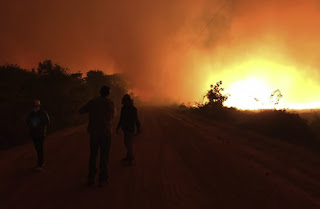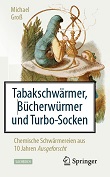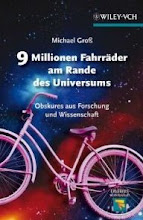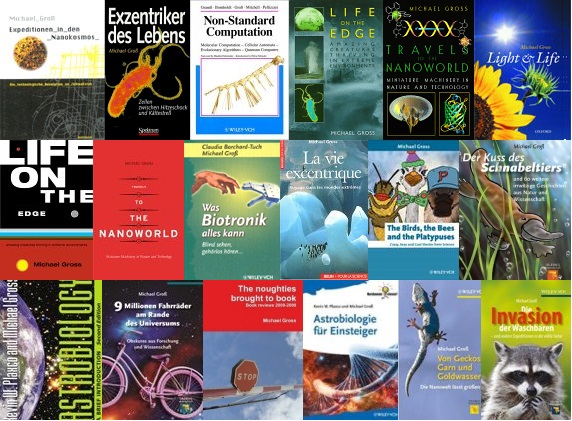Here's a memoir fragment I wrote in English in 2015 and kept in a drawer. At the tail end of bringing up my own children, I had built up a lot of anger about all the opportunities I never even knew about when I grew up, but I wasn't really ready to get into discussions about that.
In 2020/21 this fragment became the nucleus for the much longer (and marginally less angry) text of chapter 3 in my cello/piano themed family memoir, written in German. To give an impression of the content of that chapter, I'm now sharing the original fragment, with only a few edits and updates.
My musical miseducation
(started writing up 23.10.2015 – this version revised in June 2022)
When I was five, my father finished his PhD and started a proper job, and we moved from an attic in the centre of Würzburg to a place in the middle of nowhere, close to the petrochemical site where he worked, but far away from everything else. At that time the chemical industry was hiring all the chemists they could get, so he had the choice to start at any of the large chemical companies. We could have ended up in a more civilised environment like Mannheim/Ludwigshafen, Frankfurt, or Köln/Leverkusen, but we ended up at the rural northern fringe of the Ruhrgebiet, not even in a village or residential development, but in a field where a local farmer had built a house for his daughter, who then very wisely decided not to move in. The small town of Dorsten was 3 km away, the village which we nominally belonged to about the same distance in the opposite direction.
I was sent to the village primary school aged 5 (and three quarters), a year ahead of schedule as I had started learning to read and write all by myself – probably because there was nothing else to do there.
My mother had inherited a good upright piano (August Förster, Leipzig, ca. 1912) from her mother, who had been a piano teacher and had died just before I was born. That piano now came out of storage and moved in with us. In the early years it had pride of place in the large living/dining room, but later on it was squeezed out and ended up in the dark corridor, near the bathroom door. Meanwhile, in the attic of my (paternal) grandparents’ house, there was a good cello (although in a sorry state) last played by my great-grandfather in the early 1930s.
So my parents had space, disposable income, two quality musical instruments, and an intelligent child in primary school. What would you do in that situation? My mother decided to take piano lessons for herself and put me out to pasture on the steppe. Her teacher, a certain Kurt Kayser, head of the Vestische Musikschule at Gelsenkirchen-Buer, died on April 25, 1972 after smoking-related illnesses, and her lessons notebook runs for two years and a bit from Feb 17 to March 18. As I found payment receipts from May 69 to July 70, and I seem to remember that Herr Kayser was ill for a while, I conclude the lessons ran from February 1969 (just before I started school) to March 1971.
Update 2.11.2023: A postcard of the Musikschule has turned up on Flickr, written by a piano teacher called Eusebius Kayser, possibly related to Kurt? not sure how to fit these two together, as Eusebius is named as the head of the school when it re-opened in 1946, but Kurt is referred to as its founder in his death notice, and it was founded in 1920.
Ironically, Kurt Kayser was also a cellist, so in her piano lessons they sometimes played cello sonatas together (the notes don’t say, they only identify pieces by composer) and I remember her raving about what a lovely instrument that was. Nobody told me that there was a cello in my grandparents' attic, and that children can, you know, learn to play that thing.
One time in her late 70s, my mother was still raving about Herr Kayser and how unfortunate his death was (he was 78 though), and how he was her best chance of learning the piano properly, without seeming to notice that I was sitting opposite her and might have opinions on what she should have done at the time.
I learned to play the recorder in primary school by default – I think the whole class did, or at least a significant proportion. That lasted for less than a year and I have a vague feeling I enjoyed it. Also, the things I learned there stuck for a lifetime. After decades of not using the knowledge I have picked up recorders and played tunes from sight. The notes you learn first on the recorder are still the ones I read most automatically.
I still have the booklet with the recorder tunes and dates of the lessons scribbled in. I was shocked to find out that the dates match the year 1974, so it only happened in the second half of year 4 of primary school, when I was 10 already. At the end of the school year, that recorder tuition ran out, and so did my musical education. I am fairly sure that nobody told me that one can “move up” from the recorder to a proper flute and do more interesting things with that. So no music for the next few years, apart from being forced to sing carols at Christmas.
I moved on to the Gymnasium (selective secondary school) where at one point the music teacher tested us for musical hearing. The tasks were things like: “Which of the two intervals is the larger one?” – completely trivial for those kids who were already learning an instrument. If in doubt, you just hum the scale inside your head to count the steps in each interval. And practically impossible for the rest of us who hardly knew what an interval was, let alone how to determine its size. I suppose if anybody had shown up with the unrecognised raw talent of a young Mozart at that point, the teacher would have taken steps to make sure they get an opportunity to use it, but to my knowledge nobody did.
At age 13 at least (I know because I already had the large bedroom that only became available in 1976 after the other family had moved out of the house consisting of two flats), my mother brought up the issue that it might be good for me to learn an instrument. My father suggested a guitar group, emphasizing “group”, as the social aspect was the only part of the equation that he could relate to.
However, by that time I had already decided that I wasn’t really keen on spending more time with other kids than I did anyway, as I was much happier in my own company and had plenty of books to read. So I got upset and argued that a) I could already play the recorder, and b) I could learn the guitar all by myself. By that point, a classical guitar of reasonable quality had joined the household. My mother had bought it (for herself, not for me!) off my cousin who replaced it with a steel-string western style one. The first photo of the guitar shows up in my albums in the summer of 1978, when I was 14.
I got my way, hauled the guitar up to my bedroom, and learned the essential chords that everybody can play. I figured out a way to play a scale without open strings, so I could essentially play any tune in any key, and stayed on that level, without any encouragement to move up and play some easy classics, for instance. Only in my student days did I discover sheet music for easy classical guitar and got to learn some easy bits from Bach etc.
What also didn’t happen between ages 5 and 16 was exposure to live classical music. From January 1981 - I was 17 and a member of the editorial team of the pupils’ magazine spectrum - a music teacher at the school organised free tickets for the spectrum crew to see classical concerts held regularly by the Philharmonia Hungarica in nearby Marl. The PH was a widely known orchestra founded in Vienna in 1957 by musicians exiled from communist Hungary, and for some reason that I forgot, possibly a pot of state funding being available, it landed in the otherwise not too cultured town of Marl. (After losing its politically motivated state finance, the orchestra was disbanded in 2001.) I am quite sure that until then I had not known anything about the PH. In the second concert we attended they played Dvorak’s cello concerto, with Ralph Kirshbaum as the soloist, which became my favourite piece of classical music. Later I found out that my grandfather, being the son of a cellist, although not a musician himself, owned three LPs with different recordings of this concerto. Another piece that left a deep impression at that point was Schubert’s unfinished symphony – these days I occasionally get to play it with Cowley Orchestra and the goosebumps I get from that are remarkable.
Opera, ironically, didn’t happen either, although my mother was a huge opera fan. Presumably that was a pleasure not to be shared with mere peasants such as the rest of the family. The first opera performance I saw was Don Giovanni at the Musiktheater im Revier, Gelsenkirchen, in the season of 1980/81, so I was 17 or just under. Even later still (cinematic release in Germany 23.11.1984), I saw the film adaptation of the opera Carmen, with Julia Migenes in the title role and Placido Domingo as Don Jose and really loved it. (Today I realise that the story is a rather problematic one to love.)
In the summer of 1980, at the age of 16, I discovered my great-grandfather’s cello in the attic of my grandparents’ house. It had a few gut strings, but the bridge was missing, and there were a couple of serious cracks in the body. It had been stored in a cloth bag, so the protection wasn’t all that perfect. I took it home to my room (where it joined the classical guitar as well as an ancient black Framus semi-acoustic guitar which I had bought a few months earlier, in May 1980). I built a very provisional bridge from spare bits of wood, bought a cheap bow, and fancied the idea of learning to play the instrument.
So I went to the local council’s music school with mother and we enquired whether that might be possible. The guy who dealt with us (no idea what his role was) suggested that a) it might take a while to get the old cello sorted out, b) I was way too old to learn such a difficult instrument properly, and c) wouldn’t I like to learn the double bass instead. He took us to instrument storage where they had several of them standing around (clearly a shortage of pupils willing to pick them up!) and let me try it out, all the time emphasizing how perfect my hands were shaped to play the double bass. With hindsight, he clearly had too many pupils for cello on his books and not enough for double bass, but I swallowed the bait and started learning bass, renting an instrument from the music school (at DM 5,- per month, it was obviously at the taxpayer’s expense).
I only have very hazy memories of my first bass teacher, a Mr Balint (possibly Hungarian, not sure, there were lots of Hungarian musicians in the area thanks to the PH). He was soon replaced by a younger teacher, Gunnar Polansky, who was a very down-to-Earth, ordinary child of the Ruhrgebiet, and also a very talented musician with a promising career as part of a Jazz trio (the Thomas Gabriel Trio). He explained to me why the Jacques Loussier trio had their famous interpretation of Bach’s music all wrong, and his trio was playing Bach much better, but I forgot why it was better.
Checking up on the internet, I realise the Thomas Gabriel Trio has remained active for over 30 years (they released a CD with jazzed-up Bach music in 2013), and Gunnar also advanced in the classical world, becoming solo bass at the Neue Philharmonie Westfalen (an orchestra that is only new because it resulted from the merger of two smaller regional orchestras).
Through Gunnar’s encouragement, I got into the Big Band of the Music School (somehow, the regular orchestra was never on offer?!), where I learned about three jazz standards (including How high the moon, which I still like today) and I think I took part in one concert, although I have no direct memory of playing in the concert.
I continued bass tuition through to the summer of 1984, as I did my Zivildienst (replacement military service for conscientious objectors) from home, so in total I had nearly four years of tuition on bass, and I got half way through the Simandl etudes, but nowhere near performing anything. On one occasion I had the opportunity to accompany some school choir singing Eastern European folk songs, together with a pianist. Although I practiced my part quite a bit, I fell apart as soon as I had to keep in time with the pianist, never mind the choir. Today I would know what to do about such problems, but at the time I was clueless and didn’t get much help.
Moving on to University in 1984, I had an extremely small student room, so putting a bass in there was completely out of the question. Still, I ventured out to a try-out rehearsal with some local jazz band. As it happened, their bassist was away that day but his instrument was there, so I could pluck a few wrong notes at the wrong time. I was put into my place quite firmly, however, when the other musicians discussed which piece to play next, someone proposed a title, and another one said: “No, without a bass we can’t play that one,” while I was standing next to him holding the bass. Sadly, I haven’t played a bass since that day. (Update: on one occasion at the Isis Farmhouse, I borrowed Noreen’s bass for five minutes. Didn’t get any standing ovations for my playing.)
Looking back, there were many other ways in which I was discouraged from playing music while I was growing up, even discouraged from having opinions on music. My parents liked to ridicule other families where children were bribed to practice their instruments – I remember this specifically of one family they knew from university times and where the children were younger than me and learning piano while I was still learning nothing. Apparently, they traded TV time for piano practice time and apparently that was a completely outrageous thing to do. Not that it would have worked with me as I never saw the point of TV.
Similarly, a school friend of mine who came from a family where children learned violin by default was extremely unpopular with my parents, an aversion which I have never understood. I suppose the bottom line was that those kinds of families come from another planet and have nothing to do with us.
This might have been a valid argument if my mother hadn’t been the daughter of a piano teacher as well as a pianist and singer herself. More shockingly still, we had virtually no contact with the family of her oldest sister while I was growing up (curiously, her contact with that family improved after we and our cousins were all grown up and there were no educational approaches to compare and contrast any more). Allegedly this was because that aunt and her family were very religious and would have tried to convert us to their Baptist faith. Decades later I found out that all five of my cousins in that family had learned to play musical instruments. That little detail was never mentioned in our household. By contrast, we often met up with the smaller and less religious family of the middle sister, where both my cousins were self-taught guitar strummers like myself and as far as I know there had been no serious attempt at musical education.

Photo labelled "Advent 1970" - as I said music making mainly happened in the run-up to xmas.



















